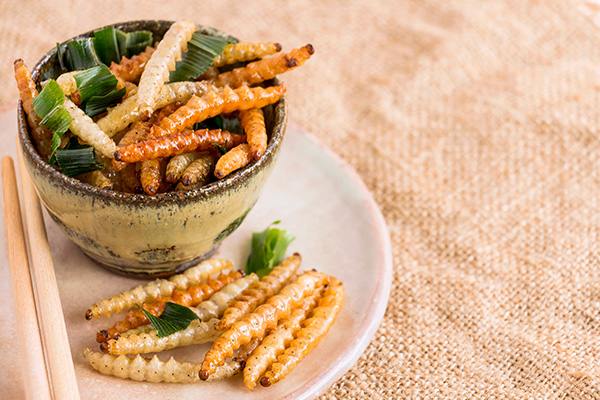Ynsect in difficulty: is insect farming really the future of the agri-food sector?
27 January 2025

Article ‘De la révolution écolo à l’échec commercial, le géant français Ynsect va-t-il faire son adieu aux larves ?’ (‘From ecological revolution to commercial failure, will French giant Ynsect say goodbye to larvae?’), published on Monday 20 January 2025 on the Libération website.
In autumn 2024, Ynsect, which produces insect-based fertilisers and proteins for animal and human consumption, was placed under safeguard proceedings. However, since its creation in 2011, the innovation proposed by the French company to respond to the climate and planetary emergency has aroused enthusiasm and led to significant fund-raising. Interviewed by journalist Arthur Cerf, Tom Bry-Chevalier, a PhDstudent at BETA, was invited to give his analysis of this failure.
Extracts : ‘Ynsect thought too big, too fast,’ says Tom Bry-Chevalier, a doctoral student in environmental economics at the BETA and co-author of a study on insect farming. They have been pushed by investors, politicians have bet big on them, and there has been total support from the government. When you raise so many hopes, it’s hard to go back on your strategy. When the safeguard plan was announced, the researcher was hardly surprised. “To what extent were the scientists involved in the process? When you’re immersed in an optimistic environment, it’s perhaps complicated to see the limits of the model and to hear the criticisms.
[…] ‘I’m hypersceptical’, says Tom Bry-Chevalier of BETA, who lists the difficulties facing the sector. Firstly, the human food market is struggling to take off. “There is very little appetite for it, and it is still consumed almost as a recreational activity. Secondly, for farmers, soya meal and fish meal are still cheaper than insect meal. Thirdly, the energy cost of a mega-factory is high, especially in a country with a temperate climate. ‘The optimum climate for raising insects is between 25 and 35° C’. Four, the use of waste is regulated: it is forbidden, for example, to feed them with waste that contains meat scraps. “Insects can’t be fed anything and everything. If we feed them waste of low nutritional quality, they will grow more slowly.” Which opens other doors: how do you collect waste? Sort it? Transport it? In short, everything is more complicated in reality. That leaves pet-food, the market for pet food, on which Ynsect has been focusing since 2023.
Nearly fifteen years after the company was founded, the same planetary and climatic urgency remains: we are going to have to reduce meat consumption, reduce the carbon footprint of livestock farming, make our food more plant-based and evolve as a species. Another path is possible. Today, plant-based food makes more environmental sense,” emphasises Tom Bry-Chevalier. But there’s no big plan for legumes, we need to put the branch on the map, make plant proteins fashionable again…”
To find out more: Corentin Biteau, Tom Bry-Chevalier, Dustin Crummett, Ren Ryba, Michael St. Jules, Insect-based livestock feeds are unlikely to become economically viable in the near future, Food and Humanity, Volume 3, 2024, 100383, ISSN 2949-8244, https://doi.org/10.1016/j.foohum.2024.100383






